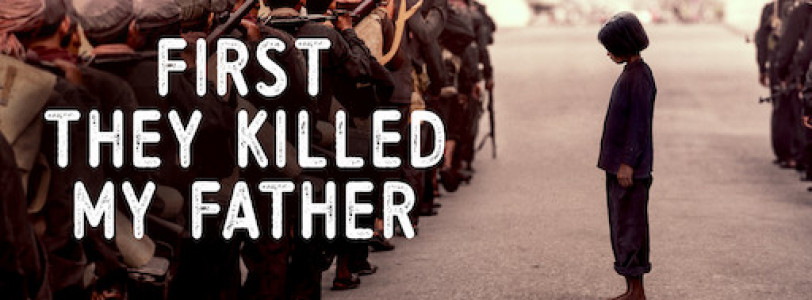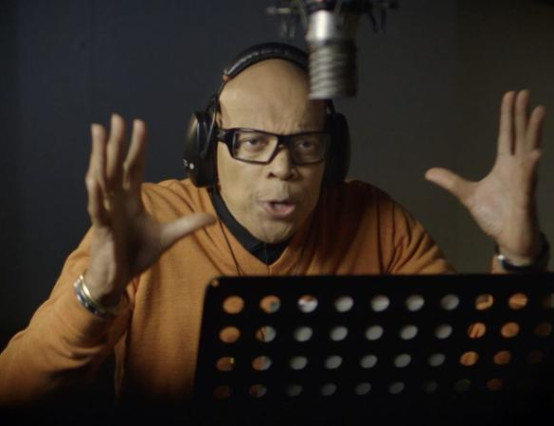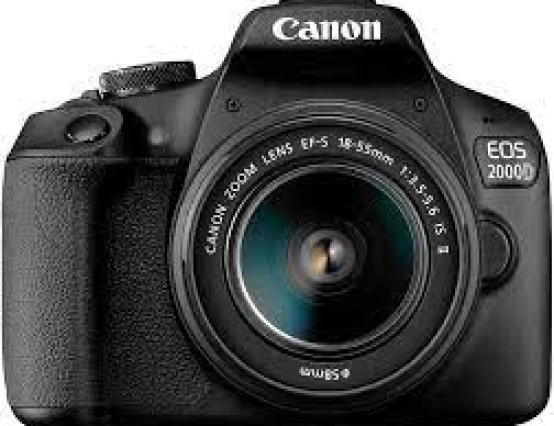'First they killed my father' is a historical biography, following the experiences of Loung Ung; a 5-year-old Cambodian girl who's life is torn apart by the Khmer Rouge's swift and brutal rise to power. Written by Angelina Jolie and Loung Ung, the film is based on the Ung's biography, using her first-hand experience to accurately portray the devastation of the Cambodian Genocide. A war film from a non-combatant's perspective does an exceptional job at showcasing the horrors war can inflict on innocent citizens. For the sake of efficiency, a detailed plot summary follows:
• Loung's prosperous family of 9 are forced to flee their city following the Khmer Rouge's preaching of 'incoming American threats'. They must recount their wealth and status in order to remain alive
• After days of travelling, they, along with thousands of other refugees, are sent to a Labour camp where they are stripped of their possessions, and put to work. Starvation takes the life of Loung's older sister.
• Loung's older brothers and older sister are taken to be trained as child soldiers, Loung's dad is taken away to aid in repairing a bridge, resulting in her mother sending her and 2 of Loung's siblings away, giving them instructions to approach a camp as orphans. After deviating from her brother, Loung and her sister are taken into a camp where they are, too, trained as child soldiers.
• Vietnamese shelling destroys the camp they are staying at, Loung and other children are liberated and taken to a Vietnamese refugee camp. The Khmer rouge retaliate on this refugee camp, pushing Loung and her sister through a mine ridden forest to escape.
• She eventually reunites with her siblings at a red cross camp.
The narrative structure of the film is designed to truly showcase the experience from a child's point of view. It follows a singular-strand, linear narrative; the single-strand of plot if indicative of Loung's lack of ability to process anyone else's experience, the linear structure is also reminiscent of this, as not only does it make sense from a genre convention stand point (biographical, in this case, being in chronological order), it makes sense from Loung's perspective. She hasn’t reached the point where her trauma causes flashbacks yet, as such the story follows a logical sequence of events in a manner easiest for a child to comprehend. The film also follows a somewhat cyclical structure, in terms of a familial sense. The exposition of the film shows the family together in their home, the ending of the film shows Loung's remaining family at a temple together. The absence of the parents and sister is noticeable, so whilst this isn't a completely cyclical turnout, its at least partially representative of that. The implications of a broken circle could very easily be linked to the trauma the family has experienced, or perhaps the country as a whole. It reads as an acceptance that the country will not return to how it was, that the individuals will never regain what they lost. The broken circle does an exceptional job at summarizing the effects of war: things are supposedly the same, but upon further investigating you find a fissure that can never be repaired.
In my opinion, one of the most moving scenes in the film is the departure of Loung's father. The use of technical codes makes this scene extremely hard hitting and emotive, whilst also having a sense of harsh realism. To start with, the low, point of view camera angles emphasize the smallness and fragileness of Loung, her father appearing much taller than in previous medium shot camera angles. This is most likely done in a direct reference to the admiration Loung has for her father; it places the father in a position of responsibility and care, which makes his departure much harsher. The use of audio, or lack thereof, in this scene drives home the chilling reality of the situation. During her father's departure, there's no non diegetic sound. One would think emotional music would add to the scene but I find the lack of it much more impactful. The scene displays such raw emotion, which is taken away by the overuse of audio. This tactful use of audio can also be seen elsewhere in the film, most notably Loung's dream scene, where the audio reflects Loung's subconscious trying to protect her from the cruel reality of her situation. The sounds of her father being killed are muffled, almost sounding filtered. I find the lighting in the scene of Loung's father departure also interesting. Theres two shots in which Loung's father has a rainbow across his face. The rainbow in Buddhism (the dominant religion in Cambodia at the time) is seen as a symbol of realization, or a symbol of 'attaining complete knowledge'. This could be a subtle implication Loung is understanding that this is the last time she'll see her father, yet she isn't emotionally mature enough to process what that means completely. The editing in this scene can only be described as chilling. The quick between light and dark reflect how easily things can change: light to dark, life to death. Impermanence, anicca in Buddhism, is often a great cause of suffering; something as simple as the lights changing connotes an underlying suffering the family has and will experience. The fade to black also seems like a crude reminder that a constant presence in Loung's life is now gone, figuratively faded. Overall, the technical codes in this scene all work to create an extremely powerful and emotional depiction of the loss of Loungs father.
There's many reasons 'First they killed my father' caught my attention, too many to adequately discuss in one review, so to surmise: this film’s beautiful camera work, heartbreaking realism and historical accuracy have cemented its place as one of my favorite historical biopics currently out.










Amazing! This review highlights all aspects of film, and it makes me want to watch the film now! I love how you included your own personal opinion, and how the narrative structure is effective. Well done!